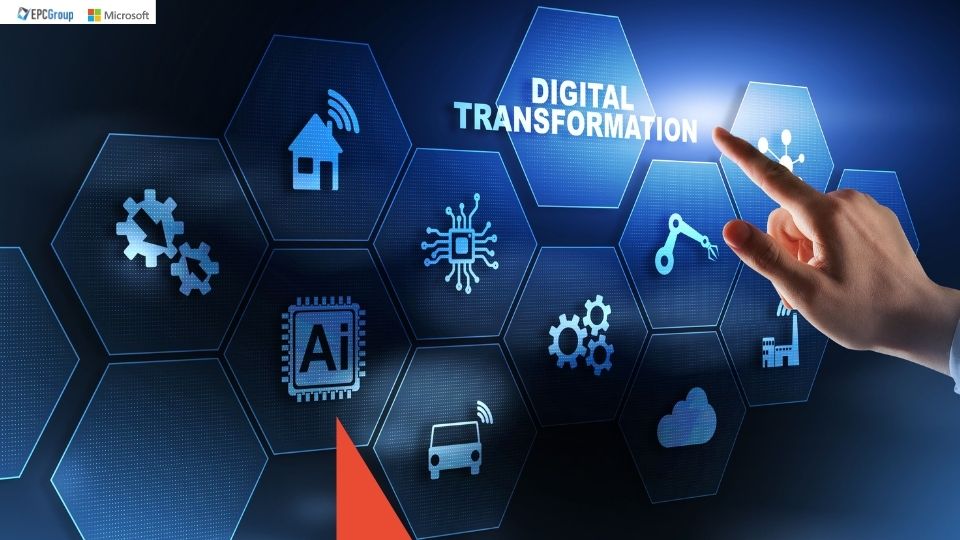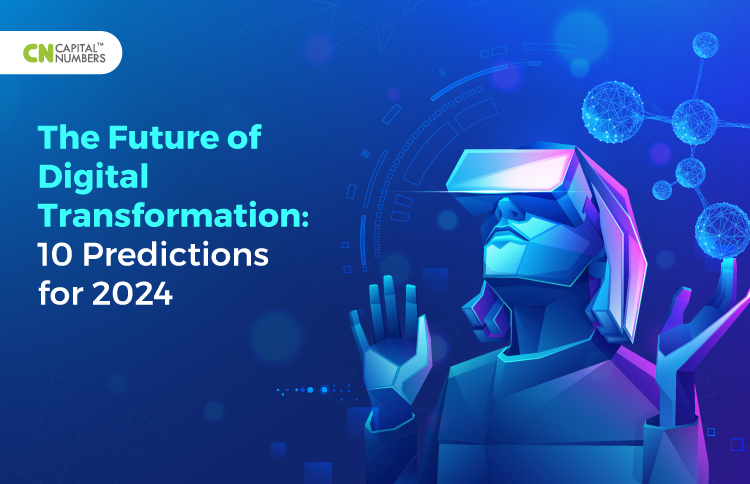The Future of Digital Transformation: Trends, Predictions, and Opportunities

Digital transformation has become a cornerstone of modern business strategy, empowering organizations to innovate, streamline operations, and deliver unparalleled customer experiences. As technology continues to evolve at a rapid pace, the future of digital transformation holds immense promise, coupled with challenges that demand proactive adaptation.
In this article, we delve into the trends, predictions, and opportunities shaping the future of digital transformation, offering insights for businesses to stay ahead in this digital age.
What is Digital Transformation?
Digital transformation refers to the integration of digital technology into all areas of a business, fundamentally altering how it operates and delivers value to customers. It’s not just about adopting new tools—it’s about a cultural shift, fostering agility, innovation, and a customer-centric approach.
With businesses of all sizes embracing this shift, digital transformation has gone from a competitive advantage to an operational necessity.
Why the Future of Digital Transformation Matters
As industries undergo rapid change, staying ahead in digital transformation is critical for:
- Gaining a Competitive Edge: Companies that leverage future-ready technologies can outpace their competitors.
- Enhancing Customer Experience: Emerging tools enable hyper-personalized services.
- Driving Sustainability: Digital solutions are key to achieving sustainable business practices.
“Digital transformation is no longer optional; it’s the foundation of tomorrow’s business success.”
Top Trends Shaping the Future of Digital Transformation

1. Artificial Intelligence (AI) and Machine Learning (ML)
AI and ML are redefining industries by automating processes, improving decision-making, and enhancing customer interactions.
- AI-powered chatbots offer 24/7 support.
- ML algorithms analyze data for actionable insights.
- Predictive analytics transforms marketing and sales strategies.
2. Internet of Things (IoT)
IoT devices are expanding connectivity, providing real-time data to optimize operations and improve asset management.
- Smart factories leverage IoT for efficient production.
- Retailers use IoT for inventory tracking and customer analytics.
Read More: The role of IoT in business transformation.
3. Cloud Computing and Edge Computing
Cloud computing remains pivotal, while edge computing is emerging as a solution for faster processing closer to the source.
- Hybrid cloud models balance scalability and security.
- Edge computing enables real-time decision-making for IoT applications.
4. 5G Connectivity
5G is revolutionizing industries by enabling faster data transfer and connectivity, fueling innovations in:
- Autonomous vehicles.
- Smart cities.
- Enhanced remote work solutions.
Predictions for the Future of Digital Transformation

1. Rise of Hyper-Automation
Automation will extend beyond repetitive tasks to encompass complex workflows, driving efficiency across industries.
2. Expanded Role of Blockchain
Blockchain will go beyond cryptocurrency, offering secure solutions for supply chain management, healthcare records, and more.
3. Greater Focus on Cybersecurity
With cyber threats on the rise, robust security frameworks will be integral to every digital transformation strategy.
4. Sustainability Through Technology
Technologies like AI and IoT will be used to monitor and reduce carbon footprints, promoting green practices.
5. Human-Centric Digital Transformation
The focus will shift to blending technology with human empathy, ensuring digital tools enhance employee and customer experiences.
Opportunities in Digital Transformation

Digital transformation offers significant opportunities for businesses to:
- Expand Market Reach: Digital platforms open doors to global markets.
- Innovate Product Offerings: Data-driven insights enable the creation of tailored products.
- Empower Workforces: Collaboration tools improve employee productivity and satisfaction.
Key Industries Leading the Way
1. Healthcare
- Telehealth solutions provide remote consultations.
- AI-driven diagnostics improve patient outcomes.
2. Retail
- Personalization technologies revolutionize customer shopping experiences.
- Automated logistics enhance supply chain efficiency.
3. Finance
- Blockchain ensures transparency and security.
- AI-driven fraud detection prevents losses.
Explore More: Digital transformation in finance.
How to Prepare Your Business for the Future
1. Invest in Emerging Technologies
Allocate resources to adopt tools like AI, IoT, and blockchain.
2. Foster a Culture of Innovation
Encourage teams to embrace change and think creatively.
3. Build Strategic Partnerships
Collaborate with tech providers and consultants to stay ahead.
4. Prioritize Cybersecurity
Protect data assets with robust security measures.
FAQs on the Future of Digital Transformation
Q1: What are the main drivers of digital transformation?
A: Customer demand, technological advancements, and the need for operational efficiency are primary drivers.
Q2: Is digital transformation only for large businesses?
A: No, small businesses can also leverage digital tools to enhance competitiveness.
Q3: How does digital transformation impact employees?
A: While it automates repetitive tasks, it also creates opportunities for upskilling and innovation.
Q4: What role does data play in digital transformation?
A: Data serves as the foundation for insights, decision-making, and personalization strategies.
Conclusion
The future of digital transformation is both exciting and challenging. As new technologies emerge, businesses must remain agile, innovative, and customer-focused to thrive. Whether it’s through AI-powered automation, blockchain security, or sustainability practices, the possibilities are endless.
By preparing today, organizations can position themselves as leaders in tomorrow’s digital landscape. Don’t wait—embrace the future of digital transformation now!

